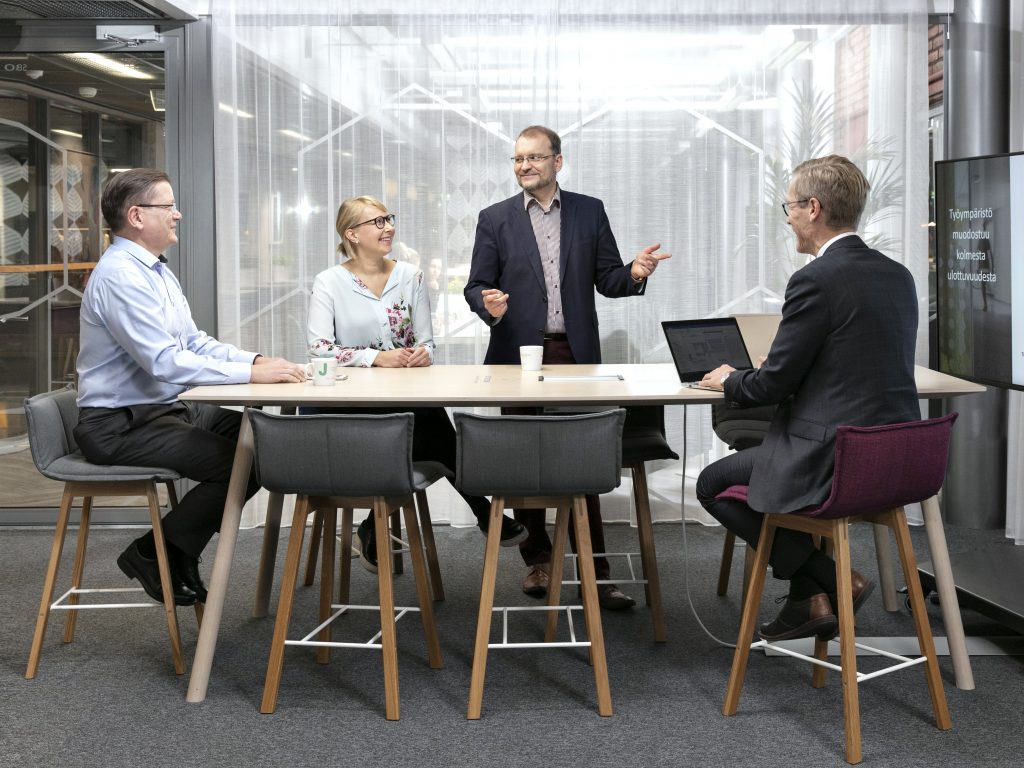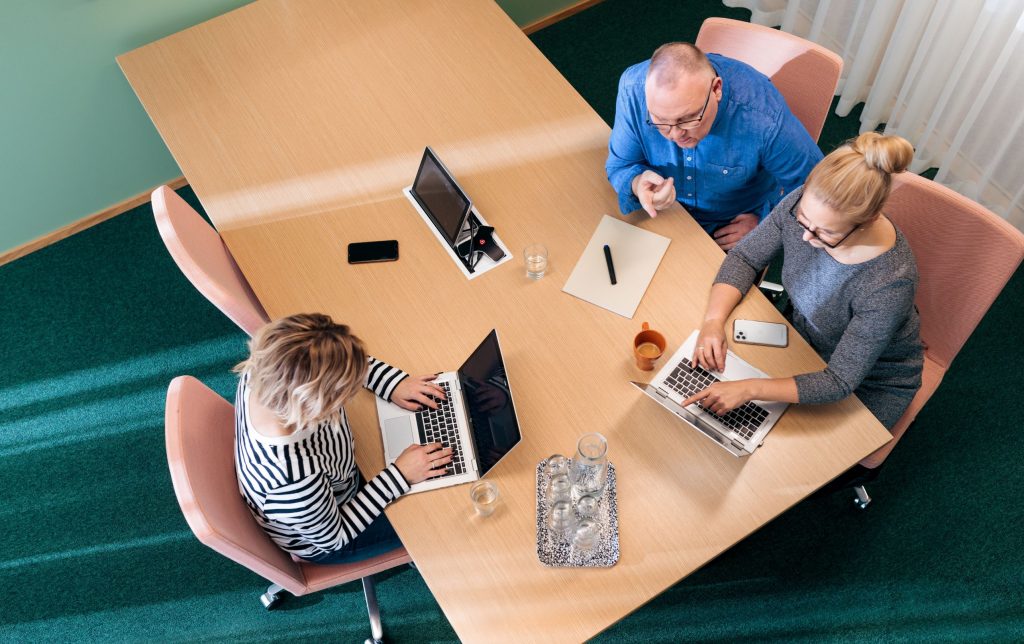
Procurement development programme – together for more effective procurement
We aim to improve procurement performance, in particular by increasing the willingness to bid. We do this, for example, by making it easier to participate in competitive tendering, improving communication, increasing market dialogue and by cutting red tape.
Senate’s procurement development programme aims to make procurement more effective and efficient. The goal is to increase the willingness to bid and make bidding easier, clearer and more attractive – both for new and existing suppliers.
The programme addresses concrete ways to improve procurement processes: lowering the participation threshold, clarifying tender documents, strengthening market dialogue and cutting unnecessary red tape. The aim is to build cooperation that benefits all parties concerned.
Aiming for significant savings and better cooperation
The procurement development programme has progressed better than expected. Launched in spring 2023, the programme aimed to achieve savings of €100 million by the end of 2029. This target was reached during the strategy period ending in 2025 and was updated to €120 million for the new strategy period 2026–2029. The plan is to achieve this savings in particular by increasing the willingness to bid.
To reach this, the procurement will focus on, for example:
- increasing dialogue and strengthening cooperation
- moderating the criteria for competitive tendering
- making it easier to bid
- increasing the number of mutually beneficial contracts
- clarifying and standardising tender documents.
What’s already been done – results and actions
The procurement programme is more than a plan – it’s already delivered results. Savings have been achieved and the measures taken under the programme are yielding tangible results:
- competition calendar published on the website
- popular supplier events (procurement information events) have been held across Finland for two years in a row
- increased market dialogue
- start made on the service design of invitation to tender documents
- introduction of supplier and provider surveys and utilisation of the results in development work
- start made on streamlining purchase and competitive tendering processes using the lean methodology
- procurement reporting developed to support knowledge-based management.
Looking ahead – artificial intelligence, streamlining and better reporting
The procurement development programme consists of five sub-projects, through which several new measures are being implemented during 2025. Read more about the projects below. These measures include: events for potential suppliers and existing partners, clarification of invitation to tender documents, streamlining the procurement process, developing the reporting system, improving the handling of supplier feedback and making use of robotics and AI in the procurement process.
Questions and answers
Why is it worth pursuing savings in procurements?
The overall financial situation of the public sector is weak and all public actors need to critically review their performance and look for savings. The government programme of the current government aims to achieve significant cost savings in public procurement and we want to play our part in supporting the government’s overall situation. In the government programme, “Successful competitive tendering ensures that citizens receive high-quality services and that taxpayers receive value for the money spent. Successful procurements also improve the operating environment for businesses”.
Senate Group’s spends more than €1 billion on annual procurement and costs are under upward pressure due to inflation, rising prices for services and goods, and significant investment needs. The procurement development programme is a key tool to curb cost increases.
Central government rents are own-cost based, which means that Senate needs to be able to cover all property costs – such as renovations, maintenance, borrowing costs and real estate tax incurred by the property – out of the rent. Senate does not make a profit on rents paid by central government customers.
What are the savings based on?
Savings can be pursued by increasing the willingness to bid and by building stronger partnerships between buyers and sellers. Improved willingness to bid will be reflected in savings on competitive tendering. Commercial and process savings will also be monitored. Commercial savings will be generated through better contracts and innovation over the contract term. The aim is to create contract models that benefit all contracting parties. For process savings, we must be smarter and more efficient internally.
Will Senate’s costs fall next year?
Successful competitive tendering and cost-effective contracts enables us to procure services, goods and contractual work more cheaply than before. This will allow us to contain the upward pressure on costs due to inflation, etc. The financial benefits may not be directly reflected in lower costs in the bottom line, but will give us more value for money than before or more money to spend on other things.
Will customer rents fall?
Senate Group rents are cost-based and cost-efficiency is used to curb upward pressure on rent costs.
When procurement is tendered in cost-effectively, it impacts the total cost of an investment project and in turn also on the rental cost for the customer.
How will responsibility, safety and quality be taken into account in future procurements?
The development programme primarily aims to improve operations: increase communication and cooperation with suppliers, reform procurement procedures, etc.
Responsibility and safety will continue to be very important to us. However, the requirements must be correctly sized and reasonable to ensure a good willingness to bid. The same applies to quality. We want quality services to ensure a good customer experience, but we do not require excess quality.
Will the savings from the development programme result in less revenue for the supplier?
The procurement development programme aims to achieve savings by improving procurement effectiveness, but not at the expense of suppliers. Savings are being pursued among other things, by moderating the criteria for competitive tendering, so that invitations to tender do not require unnecessarily high quality or matters that are not essential to the relevant procurement. This lowers the threshold for participation and can lead to more cost-effective bids.
In addition, the procurement development programme focuses on clarifying and standardising tender documents and increasing market dialogue. These measures will make it easier for suppliers to understand the objectives and requirements of the competitive tendering process, thereby reducing the time and resources spent on preparing bids. The aim is to build mutually beneficial cooperation allowing suppliers to focus on the essentials and to generate value efficiently.

Procurements and competitive tendering
